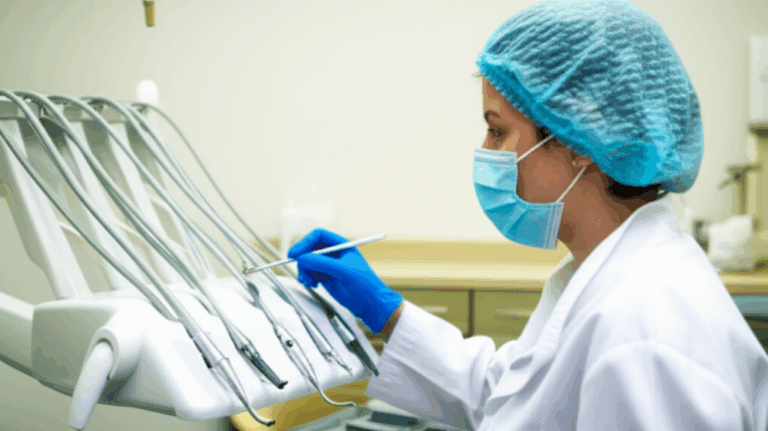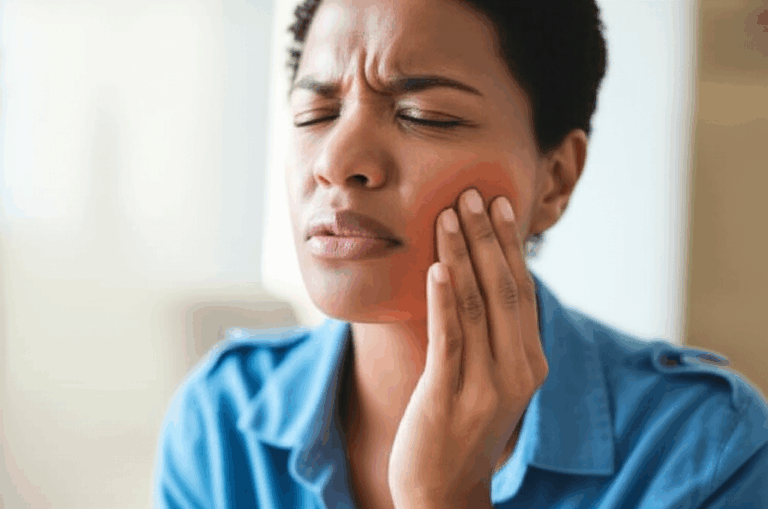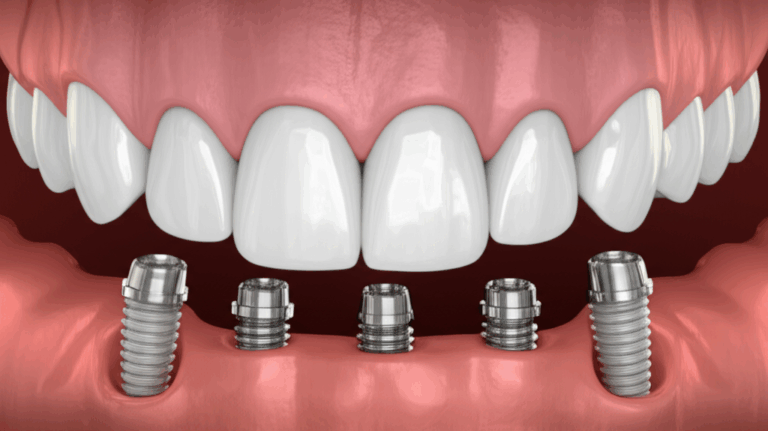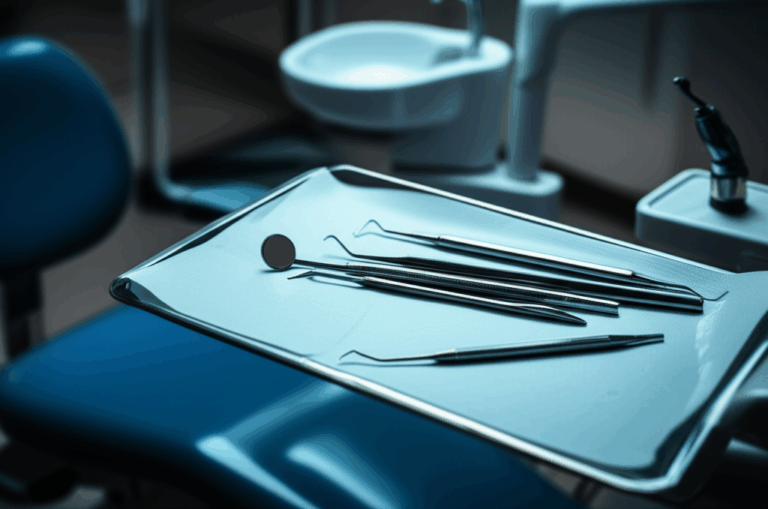
Can Dental Problems Cause Inflammation In The Body?
For a long time, it feeled like my body was fighting me. I was constant tired, my joints hurt for no good reason, and my head was always cloudy so it was hard to think straight. I telled myself it was just stress or I was getting old. I seen doctors, did tests, but everything come back “normal.” It was real frustrating and made me feel alone. I never would have guessed that the real problem, the thing messing up my health, was hiding right there in front of me—inside my own mouth.
If you ever felt sick but don’t know why, or you got a sickness that just won’t go away, this story could be the biggest thing you read this year. I’m gonna share the surprising and big link I found between my teeth health and the swelling that was making a mess of my whole body. This ain’t just some idea; it’s the story of how fixing my teeth gave me my life back for real.
What’s in This Article
- My Wake-Up Call: When My Body Started Yelling for Help
- Knowing the Bad Guy: What is This Swelling Thing, Anyway?
- The Mouth-Body Link: How Germs from Your Mouth Get in Your Body
- The Domino Problem: How Mouth Swelling Causes Problems Everywhere
- How I Got Better: Taking Charge of My Teeth Health
- Your To-Do List: How to Keep Your Whole Body Safe by Taking Care of Your Mouth
- Last Words: Your Mouth Shows How Healthy You Are
My Wake-Up Call: When My Body Started Yelling for Help
My problems started out slow. At first, it was just a tired feeling that no coffee could fix. Then, my knees and wrists started to hurt, mostly in the mornings. I said it was the weather or a tough workout, but the ache never really went away. The worst thing was the cloudy head. I’d walk in a room and forget why, or I couldn’t find the right word when I was talking. It feeled like my brain was stuck in mud.
I done what anybody would do: I went to my doctor. We done blood tests, checked my thyroid, and looked to see if I was low on vitamins. The answers was always the same: everything looked good. “You’re healthy,” they’d say, but I feeled sick. It was a lonely feeling, being sick when all the tests said I was good.
While all this was happening, I had a tooth in the back of my mouth that would hurt a little now and then. It wasn’t a sharp, real bad pain, just a little ache that come and go. I’d pop a ibuprofen and forget it. It was just a sensitive tooth, I thought. I was busy. I had a life, and a small toothache was the littlest of my problems next to the tired feeling and joint pain. Boy, I was so wrong.
The “aha!” moment come from a place I didn’t expect. I was reading a story online about rheumatoid arthritis, and it said there was a link to gum disease. A little light bulb went off in my head. Could my annoying tooth be connected to my hurting joints? It seemed like a crazy idea, but I was ready to try anything. I finally made a dentist appointment, and that appointment changed it all.
Knowing the Bad Guy: What is This Swelling Thing, Anyway?
Before we get to the mouth part of this, you gotta know what we’re talking about. “Inflammation” is a word you hear a lot, but what’s it mean?
I used to think inflammation was just swelling—like a sprained ankle. But I learned it’s a lot more than that. Think of inflammation as your body’s own security guard. When a bad guy shows up—like a splinter, a cold bug, or germs—the security guard rushes over. You see this as red skin, swelling, feeling hot, and pain. This is acute inflammation, and it’s a good thing. It’s your body fighting off bad stuff and starting to heal. It’s a fire alarm for a little fire in the kitchen; it rings loud, does its job, and then it shut off.
The problem start when that alarm don’t shut off.
Chronic inflammation is when your body’s security guard is on high alert all day, all night, for weeks, months, or even years. The bad guy might be gone, or it might be a small one that won’t go away that the body can’t never beat. This emergency feeling all the time is tiring. Instead of healing you, it start to damage your good parts and organs. It’s the fire alarm going off forever, making stress and damage all over the house. This is the quiet, all-over swelling that was making me tired and giving me joint pain and a cloudy head. It’s connected to almost every big sickness we know: heart problems, diabetes, arthritis, and some cancers. And I was gonna find out my mouth was where the fire started.
The Mouth-Body Link: How Germs from Your Mouth Get in Your Body
Here’s a piece of teeth information that blew my mind: a person’s mouth has over 700 kinds of germs. It’s a busy city of germs. When everything is balanced, these germs live together fine. But when things get messed up, it turns into a place where trouble grows.
I learned from my dentist that our mouths has two main ways of letting these bad germs get out and get into the rest of our body. Think of them like two secret doors.
The Gum Disease Door: Gingivitis and Periodontitis
The most common door is through your gums. I always thought if my gums bleed when I brushed, that was normal. “I’m just brushing too hard,” I’d tell myself. I was wrong. Healthy gums don’t bleed.
Bleeding gums are the first sign of gingivitis, the start of gum disease. It’s from plaque, a sticky film of germs, building up on your gumline. This makes the gums mad, so they get red, swollen, and bleed easy. At this point, gingivitis can be fixed all the way with good dental care.
But if you don’t do nothing about it, like I did for a long time, it can get worse and turn into periodontitis. This is the big leagues of gum disease. In periodontitis, the swelling goes deeper. The germs let out bad stuff that make your gums pull away from your teeth, making little pockets. These pockets get germs in them, and your body’s defense system, trying really hard to fight the germs, starts to break down the bone and stuff that hold your teeth in.
Here’s the scary part: those swollen, bleeding gum pockets are a freeway for germs to get in your blood. Every time you chew or brush, you can be pushing them bad germs right into your blood. They ain’t just a problem in your mouth no more; they’re bad guys on the loose, going to every part of your body.
The Secret Problem: Tooth Infections
The second door was the one that got me. It’s the hidden infection, a tooth abscess. An abscess is a pocket of pus that grows around the bottom of a tooth. It’s from a germ infection that got deep in the tooth, usually from a cavity you didn’t fix, a crack, or getting hit.
My “sensitive tooth” wasn’t sensitive. It was a tooth with a deep crack that let germs sneak in and make a home deep in my jawbone. Because it was a small, long-term infection, it didn’t cause the screaming pain you might think of with a tooth problem. It was just a little, steady ache. A non-stop, small factory making swelling signals and sometimes leaking germs into my body.
My dentist explained it with a good story. He said, “Picture a small, smoky fire in the basement of your house. You might not see flames, but the whole house is slowly filling with smoke.” That was my tooth. The infection was the fire, and the swelling spreading through my body was the smoke.
The Domino Problem: How Mouth Swelling Causes Problems Everywhere
Once them mouth germs and swelling signals get in your blood, they start one bad thing after another—a domino problem that can hurt your whole body. Your body’s defense system sees these bad guys and goes crazy, letting out an army of swelling things called cytokines.
These cytokines are supposed to help, but when they are always being made, they cause swelling that is all over and won’t stop. Doctors can check this swelling with a blood test for C-reactive protein (CRP). High CRP is a big warning sign for swelling in the body, and guess what? Studies showed that fixing bad gum disease can lower a person’s CRP levels a lot.
It all were making sense now. This all-over swelling was why I feeled so bad. Here’s how it connects to other health problems:
The Link to Heart Problems
This is one of the things scientists know for sure. The long-term swelling from gum disease helps cause atherosclerosis, which is when the tubes that carry your blood get hard and narrow. It hurts the inside of your blood tubes, letting cholesterol and plaque build up. Even worse, scientists have found the same germs from mouth plaque *inside* the plaque in the blood tubes of people with heart problems. The germs literally go from your mouth and make a home in your blood tubes, helping to make blockages that can cause heart attacks and strokes.
The Connection to Diabetes
The link between gum disease and diabetes is a bad two-way street. Having diabetes makes you get infections more easy, including periodontitis. But the swelling from periodontitis can make it even harder for your body to control its blood sugar, making your diabetes worse. It’s a bad circle where each sickness makes the other one worse.
The Effect on Joints and Arthritis
This was the one that was my problem. The same swelling things (cytokines) that are let out because of mouth germs are known to cause swelling in the joints. For people who already have rheumatoid arthritis, a sickness where your body attacks itself, periodontitis can make their problems a lot worse. My joint pain wasn’t called arthritis, but it was clear that the swelling signals from my bad tooth was helping cause the aches and stiffness I feeled every day.
Brain Health and Thinking
This is a newer but real scary thing they are studying. Some studies found the germ that causes periodontitis, *Porphyromonas gingivalis*, in the brains of people with Alzheimer’s disease. The idea is that this germ and the swelling it causes might help make the brain plaques that go with Alzheimer’s and hurt your thinking. My cloudy head wasn’t just me being tired; it was a real body problem from the swelling spreading from my mouth to my brain.
How I Got Better: Taking Charge of My Teeth Health
My dentist visit was the big change. After a real good look and a 3D scan, the dentist showed me the picture of my cracked tooth. There it was: a dark spot around the bottom of the tooth, the clear sign of a long-term infection. I had weird feelings—I was scared that this was growing inside me, but also I was so happy to finally have a answer.
For me, the fix was a root canal. They cleaned out the bad stuff from inside the tooth, cleaned it up good, and sealed it so no more germs could get in. After that, to protect the tooth that was now weak, I needed a crown. My dentist was great and explained how much better tooth fixing is now. He worked with a fancy digital dental lab that used scans of my mouth to make a crown that fit perfect. They used the best stuffs, and he even said they work with a special emax dental lab for jobs that need to be extra strong and look good. For bigger jobs, like putting in lots of new teeth, he told me they work with a special arch dental lab to make sure your bite and smile are perfect. It were cool to see how machines helped me get better.
I didn’t just get better in my mouth. My whole body did. In a few weeks after the root canal, something amazing started to happen. The first thing I saw was my mind feeled clearer. The cloudiness started to go away. Then, I woke up one morning and saw my knees didn’t hurt. The deep, tired feeling in my bones started to go away, and I had more energy than I feeled in years. It was like a miracle. I had spent so much time and energy worrying about problems all over my body, when the main cause was, for real, a root.
Your To-Do List: How to Keep Your Whole Body Safe by Taking Care of Your Mouth
My story teached me a big lesson: dental care ain’t just about a nice smile. It’s a basic part of your whole health. You can’t be a real healthy person if your mouth ain’t healthy. So, if my story sounds like you, here is your to-do list.
Do the Simple Stuff Every Day
This is the first thing you do to protect yourself. It’s not hard, but doing it all the time is key.
- Brush Right: Use a soft brush and toothpaste with fluoride. Brush for two whole minutes, two times a day. Don’t scrub hard like you’re cleaning a floor; be nice to your gums.
- Floss Every Day: I know, nobody likes to floss. But you just gotta do it. It’s the only way to clean the 35% of your tooth your brush can’t get to. It gets rid of the plaque and food that feeds the bad germs.
- Think About Mouthwash: A germ-killing mouthwash can help get rid of germs, but it’s an extra helper for brushing and flossing, not something to do instead of them.
Don’t Skip You’re Dental Check-ups
Think of your dentist like a main person on your health team.
- Pro Cleanings: Go see a hygienist every six months (or more if your dentist says so). They can get off the hard plaque (tartar) that you can’t get off with a toothbrush.
- Get the X-rays: This is how they found my hidden infection. Without that X-ray, I’d probably still be hurting. You need them to see what’s going on under your gums.
Watch for These Bad Signs
Your body will give you signs. Please don’t ignore them like I did.
- Gums that bleed when you brush or floss.
- Red, swollen, or sore gums.
- Bad breath that don’t go away.
- Teeth that feel loose.
- Pain or sensitivity in a tooth that stays around.
- Pain when you chew.
If you have any of these, make a dentist appointment. Don’t wait for it to get worse.
Eat Good Food for Your Body (and Mouth)
What you eat matters to your mouth health. A diet with lots of sugar and junk food feeds the bad germs in your mouth. A diet with lots of vitamins, minerals, crunchy fruits, and vegetables helps keep your teeth and gums strong and healthy.
Last Words: Your Mouth Shows How Healthy You Are
My story was a big reminder that our bodies ain’t just a bunch of different parts. Everything is connected together. The health of your mouth is tied up deep with the health of your heart, your brain, your joints, and your whole defense system.
If you’re having health problems you can’t explain, I want you to think about your mouth health as a possible part of the puzzle. Getting the right teeth information and doing something about it can change your life. It did for me. Don’t never underestimate the big effect that a healthy mouth can have on how you feel all over. It’s not just about stopping cavities; it’s about having a longer, healthier, and more good life.








